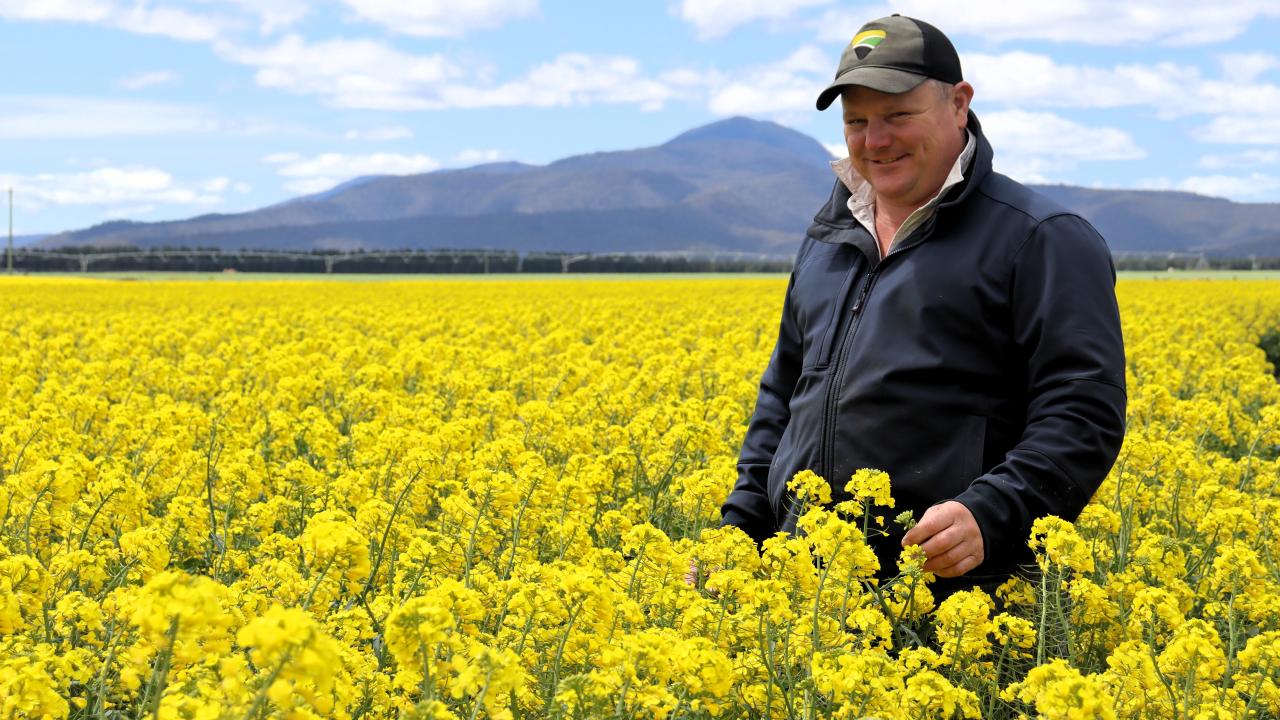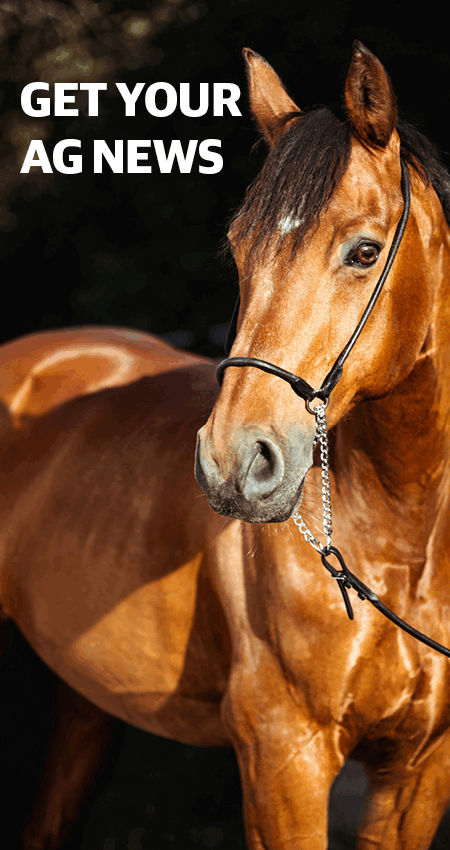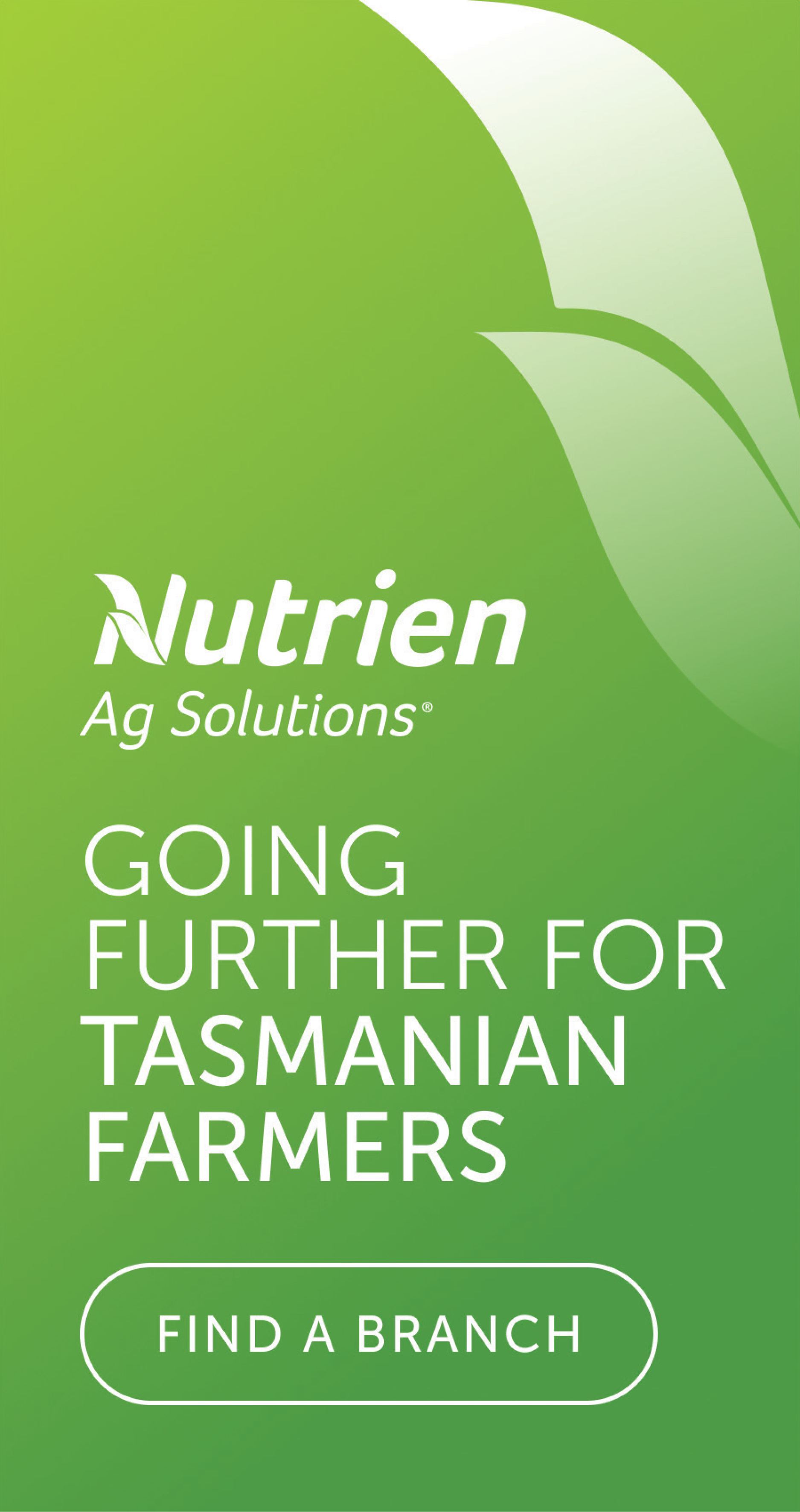Good as gold for Rob O'Connor's Benham canola oil

To Rob O’Connor it’s “just canola” – but the bright yellow fields at Benham literally stop traffic near Avoca in the Fingal Valley.
Inadvertently impressing the tourists, Rob is simply making smart choices when it comes to market value, livestock conversion rates and good rotational cropping practices on what is first and foremost a cattle and sheep property.
Roadside fields at Benham are now bursting with colourful flowers and the darkening seed of the canola plants which is sold to a grain merchant to eventually make oil for cooking, food products and even biodiesel.
The high-value, broadacre crop, planted on April 7, makes great fodder when it’s short before being then grow on to become liquid gold when it’s head height and ready to harvest around Christmas time.
At Benham it’s become the broadacre crop of choice after 30 years of growing poppies, with about 110ha of Clearfield canola planted under irrigation and a smaller proportion of Triazine Tolerant (TT) on dryland paddocks – both are group B chemical resistant making it easier to control weeds.
“The Clearfield is suitable for grazing because we can just keep watering it – but it’s a balancing act to get the grazing and the grain yield without too much bulk, which can make it hard to harvest,” Rob said.
“For us it’s about growing anything that we can scale up – we’ve moved away from specialist crops of grass seed or vegetable seed – and we like to keep things simple.
“We get contractors in to do the windrowing, but we harvest the canola ourselves.”
With water in the dams and the field looking lush, the weight of a dry spring has been lifted.
In the notoriously dry area it was not looking good just a few weeks ago, with Benham having only recorded 350mm up until the last rain which took the total to 400ml for the year – still 100ml off the average rainfall.
“That last rain brought enormous relief although it’s not outstanding, but on a positive note stock prices have increased and that’s really good news.
Benham runs around 25,000 sheep and 800 breeding cows plus it finishes its own steers and sells fat lambs.
Despite it’s 19,500ha land mass, nearly 60 percent is forestry so the remaining 40 percent has to work hard to provide an income.
“The canola price is pretty good this year so when that happens we go hard on canola and that allows us to put scale on the cereal operation in the following years,” Rob said.
“We get good value out of it and finish a lot of stock on it, but we’re finding we have to sow later to fit into the system so we’ll most likely move to all TT in the future and grow something else for the livestock to graze on and then sow the canola.”
The highly variable soil at Benham, ranging from sandy to basalt clay loam to clay, responds well to the forgiving nature of canola.
There’s no need for the high-tech soil monitoring of niche crops and while Rob did note they lost a paddock to slugs this season, it’s usually trouble-free.
“Ironically, not that we’ve had some rain, we don’t want a wet harvest - I’ll be hoping for a hot, dry summer to allow all the crops to be harvested on time, and it’s good to for livestock parasite control.”




Add new comment